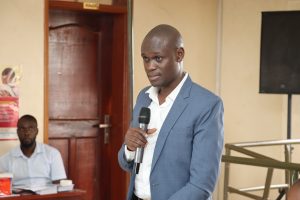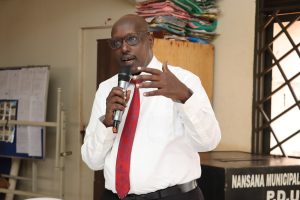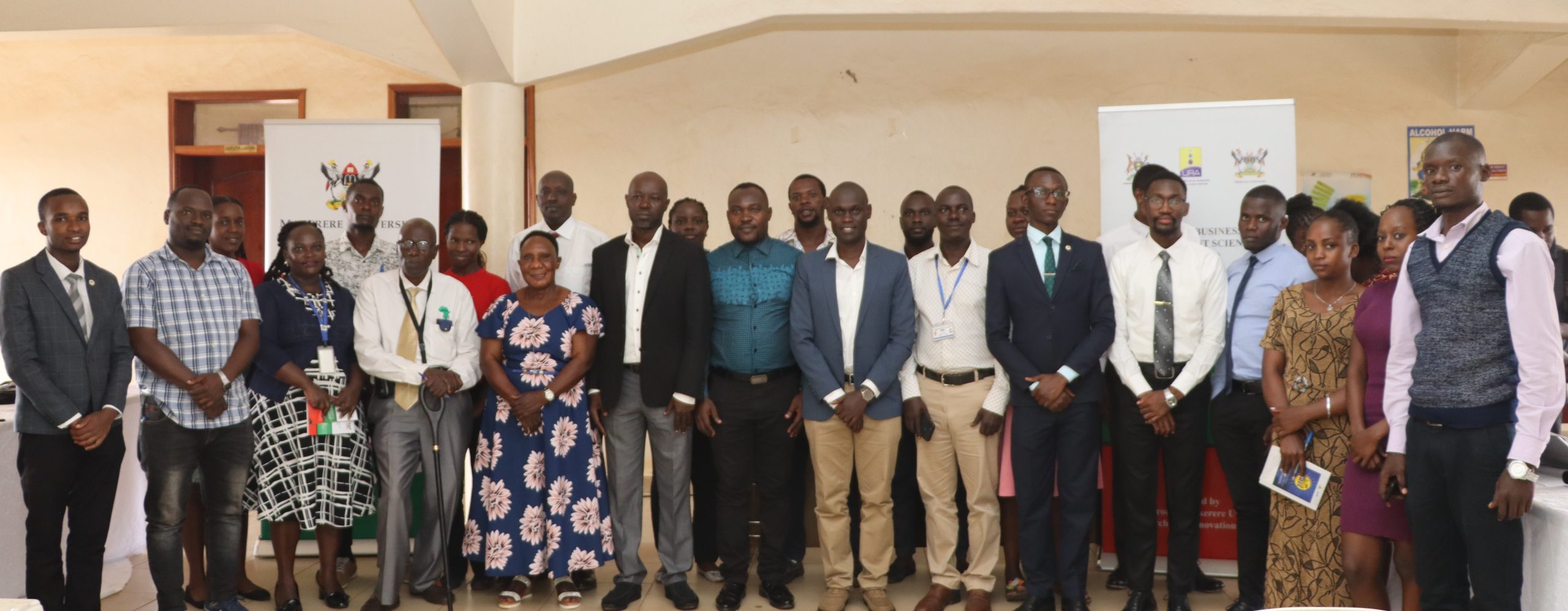A recent study by researchers at Makerere University’s College of Business and Management Sciences has identified the lack of a structured taxation framework for informal businesses as a significant cause of tax non-compliance among traders in Uganda. This revelation came from a collaborative research project involving eight university scholars, who examined the underlying factors contributing to the shadow economy and its implications for the national tax system.
The findings were presented by Dr. Ismail Kintu, the study’s Principal Investigator, at a dissemination workshop held in Nansana Municipality Council, Wakiso District, on Thursday. The research, initiated in 2022, aimed to assess traders’ perceptions of fairness within the taxation system and how this relates to voluntary tax compliance.

Dr. Kintu the PI of the research project
“Traders said the system is unfair to them,” Dr. Kintu explained during the workshop. “Our research aimed to understand what fairness means in Uganda’s context.” According to the study, fairness in the tax system is crucial for voluntary compliance, suggesting that taxes should be aligned with one’s revenue, and penalties should be applied equitably.
The researchers developed a proposed framework for taxing the informal economy, emphasizing the importance of consulting key stakeholders, such as district commercial officers, tax consultants, and leaders from traders’ associations, before implementing tax policies. The framework recommends engaging these stakeholders in meetings with the Uganda Revenue Authority (URA) and the Ministry of Finance to ensure that new tax policies are inclusive and fair.
The study also suggests the need for flexibility in tax collection, advocating for payment in installments and prior notification to traders before collecting taxes. This approach, the researchers argue, would help build trust and encourage compliance among informal traders.
The researchers’ proposed framework includes annual mapping of policy gaps in the informal economy and developing solutions to address them. This process would involve regular consultations with stakeholders to refine the tax system and maintain fairness.

Mr. Festo Tandeka, Nansana Municipality town clerk
Local officials who attended the workshop expressed support for the research findings. Mr. Festo Tandeka, Nansana Municipality town clerk, encouraged traders to cultivate a culture of paying taxes but cautioned against excessive taxation. He recommended allowing tax payments in installments to avoid overburdening traders.
Similarly, Mr. Shaffic Ali Nsubuga, Nansana Municipality Deputy Resident District Commissioner, urged tax officers to approach tax collection with compassion, suggesting that prior notices be given to traders before taxes are collected.
The findings of the Makerere University study arrive at a critical time, as Ugandan traders have recently protested against increasing taxes. Mr. Joshua Mawerere, a youth representative from the Kampala City Traders Association, welcomed the study, noting that it brings clarity to issues surrounding tax policies. He urged the government to raise awareness about new tax systems, like the Electronic Fiscal Receipting and Invoicing Solution (Efris), which some traders mistakenly perceive as additional taxes.
The study’s comprehensive approach to understanding the informal economy’s taxation challenges may pave the way for a more inclusive and equitable tax system in Uganda, fostering greater compliance and reducing the size of the shadow economy.
The research was funded by the government of Uganda through the Makerere Research and Innovations Fund. Speaking at the stakeholders’ engagement on April 25th, Ms Evelyn Nyacho who represented the chair of the grants committee, congratulated Dr. Kintu and team upon the timely research finding. She said the findings would help URA and the traders coming after a traders’ strike over taxation. She said MAK RIF was happy to sponsor research that is aimed at solving society issues like taxation. “I was happy to learn that taxes can be pay in installments. I hope traders can embrace this flexibility in paying taxes,” she said. She appreciated government for the research funding to the university. The government commits Shs30 billion annually to research at Makerere University in an effort to spur development of the country.
The research team
Dr Kintu (PI), Prof Eria Hisali (Co. PI), Dr Fred Bateganya, Dr Willy Kagarura, Mr Patrick Lumala, Mr Nicholas Musoke, Ms Marion Atukunda, and Ms Winfred Nalwoga.

